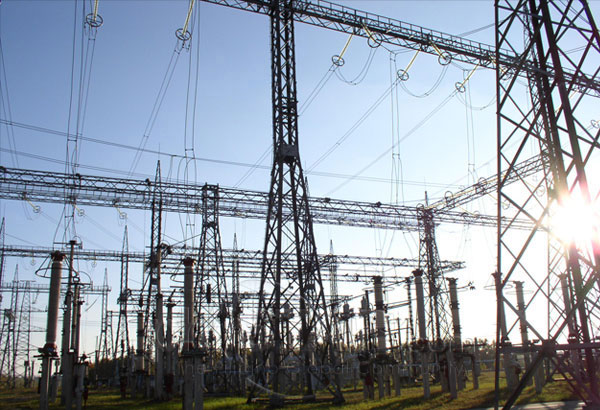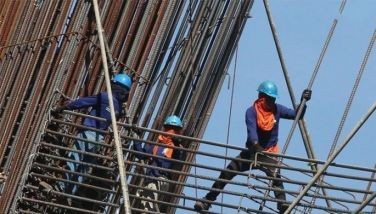Keeping Filipinos happy

A recently updated paper prepared by Dezan Shira & Associates, a consultancy firm that assists foreign investors throughout Asia, stated that the Philippines’ average minimum wage rate is already among the highest in the ASEAN region.
And yet, a report prepared by e-commerce firm Picodi at about the same time revealed that that the Philippines is one of the worst countries to live in if one is just a minimum wage earner.
This seemingly conflicted view persists in most developing economies where the dynamism of many factors inhibits its nationals from enjoying a higher standard of living. The challenge, thus, for governments is to keep a tolerable balance through more opportunities for growth.
This is why satisfaction indexes are important. In the 2019 World Happiness Report published by the UN, Filipinos ranked 69 among 156 nationalities. While income was one indicator, it was but by no means regarded as most important in assessing happiness.
In the UN study, the five other variables that played an important role in determining satisfaction were freedom to make life choices, trust towards social and political institutions, healthy life expectancy, level of available support from friends and relatives in times of need, and generosity as a sense of positive community engagement.
We all know this, and despite complaints of how difficult life is for our many kababayans to raise a family on just a daily wage, there is always that optimism that hard times will pass for those who genuinely seek a better life.
Wage hike petition
Going back to the issue of wages, just how much the minimum wage should be is a recurring theme that keeps its many stakeholders perennially busy, especially when Labor Day is just around the corner.
Towards the end of last year, an alliance of unions calling themselves Unity for Wage Increase (U-WIN) filed a petition before the Regional Tripartite Wage Board asking for a salary increase of P213 a day for minimum wage earners in the National Capital Region (NCR).
The filing coincided with the lapse of the one-year ban on wage increase petitions as specified under the National Wages and Productivity Commission rules. The last wage order dated Nov. 22, 2018 added P25 to the minimum wages of private, non-agricultural NCR workers, bringing it to the current P537.
U-WIN argues that today’s NCR minimum daily wage is way below the P1,008 cost of living that a family of five needs, and that even the sought-after P213 increase would only cover 75 percent. The labor alliance quotes a World Bank statement that states that wages have not grown in real terms between 2000 and 2016.
The Employers Confederation of the Philippines (ECOP) had responded that the wage hike petition would have little chance of being passed, since the increase being asked is 50 percent more than the current minimum wage.
ECOP president Sergio R. Ortiz-Luis Jr. even cited inflation levels last year, which were at multi-year lows, thanks to an effective management of the previous year’s food crisis that jacked up levels to 5.5 percent in Metro Manila.
Comparing regional wages
While inflation is regarded as an all-important factor in deciding any wage increase, the more pressing consideration would be the comparison of regional wages, particularly in the ASEAN, where member countries are vying for foreign investments to bolster and sustain future economic growth.
The fallout of China in the US’s current initiatives to narrow its trade gap with the emerging global power has led affected overseas supply chain manufacturers, putting a premium to low labor costs to look at other countries.
This largely explains why Vietnam, which enjoys better proximity to China, is experiencing rapid economic growth with the influx of foreign investments that have decided to hedge against being too China-centric. Unfortunately, minimum wages in Vietnam have also been increasing to allow workers to cope with rising inflation.
While foreign investors eye expanding their businesses in developing economies where labor costs are low, they also look at other indicators that affect the volatility of wages, including economic growth, political climate, incentives, and inflation.
Despite its comparatively low labor costs, Thailand has ceased, at least for now, to be the apple of investors’ eyes because of ongoing local political uncertainties, even if the country is well located in the region to serve as a hub for transshipment of goods.
Still, this ASEAN country will be starting stalled infrastructure investment plans this year, which should resuscitate its stagnated economic growth in the coming years and make it attractive once again to foreign investors.
The Philippines and Indonesia are in the midst of their respective programs to ramp up infrastructure spending, but the resulting rise in public debt would need a consistent inflow of foreign investments to offset widening account deficits.
Inclusive growth
That being the case, there is reason enough to keep the Philippines’ minimum wages at competitive levels with ASEAN counterparts. However, this does not mean that a wage hike — or its equivalent — can be put off, especially one that will be in keeping with inflation.
Minimum wage earners may now be enjoying the benefits of personal income tax exemptions made effective in 2018 by the Tax Reform for Acceleration and Inclusion Act, but these have been eroded by high inflation during the first year of implementation.
As the country aspires to move up in its economic standing, it is time to put more meat in all this talk about inclusive growth, to let more people share this newfound sovereign wealth, and overall, to keep everyone happy.
Facebook and Twitter
We are actively using two social networking websites to reach out more often and even interact with and engage our readers, friends and colleagues in the various areas of interest that I tackle in my column. Please like us on www.facebook.com/ReyGamboa and follow us on www.twitter.com/ReyGamboa.
Should you wish to share any insights, write me at Link Edge, 25th Floor, 139 Corporate Center, Valero Street, Salcedo Village, 1227 Makati City. Or e-mail me at [email protected]. For a compilation of previous articles, visit www.BizlinksPhilippines.net.
- Latest
- Trending































